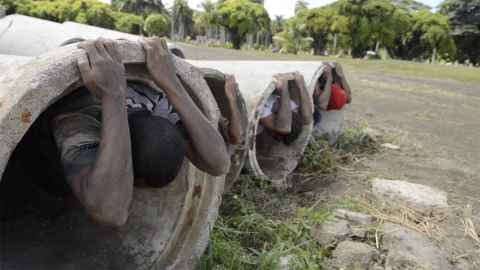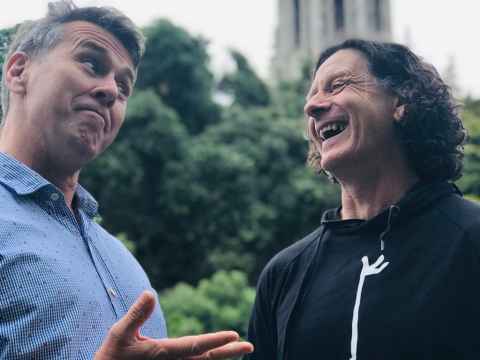New UNESCO Chair brings dance to the table
26 November 2020
It's a crowded often divisive world, one in which many of us can feel pushed to the side, and to help address this UNESCO has established the world’s first Chair on Dance and Social Inclusion.

As a partnership between the University of Auckland and UNESCO, the establishment of this Chair recognises that dance can be a key means of including the excluded, a sentiment shared by inaugural co-chairs Associate Professors Ralph Buck and Nicholas Rowe of the Dance Studies Programme.
“Dance is many things to many different people,” says Dr Buck. “It can be a performance, an art, a moment of delight, an expression of hurt. It can be a platform for fostering health, an expression of culture and heritage, a way to revolt, a means for creating a new vision for the future. It can be used as means for building community and a way to establish individual identity.”
That the inaugural Chair is located in the Pacific “challenges the idea that dance is the preserve of European cultural imperialism and celebrates the ways that dance is an integral part of the living cultures of the Pacific region,” adds Dr Rowe.
For evidence of the role of dance, we only need look at history, says Dr Buck. “There’s not one single society that hasn’t done it and doesn’t keep doing it. If we’re going to celebrate something, what do we do? We dance!
"How do we deal with stress? We dance! We saw it during the Covid lockdown with people making TikTok videos, where they were singing and dancing.”
Dance is many things to many different people. It can be a performance, an art, a moment of delight, an expression of hurt. It can be a platform for fostering health, an expression of culture and heritage, a way to revolt, a means for creating a new vision for the future.
Covid-19 has revealed more than ever the need for social inclusion and community engagement, he says, as well as the need for dance to be understood and encouraged, in schools, in community organisations, in health and tertiary institutions and more.
A key purpose of the Chair is to foster interdisciplinary, inter-university research and the teaching of dance as a way to include the often excluded - such as the elderly, people with disabilities, people who have been politically side-lined such as refugees, and other marginalised groups
The potential of dance to foster social inclusion has underpinned the teaching and research of Drs Buck and Rowe for several decades. For both, performing and participating in dance can encourage all people to be acknowledged and included.
“Dance is a very social form of interaction,” says Dr Rowe. “It allows people to communicate and interact with each other in ways that evade the politicised spoken word.
“Dance also has a deeply personal aspect to it - it allows people to realise things about themselves in terms of their own resilience, capability, and creativity. So it’s of great importance that all people have opportunities to dance in ways that are meaningful to them.”
In this way dance can promote diversity, “It’s an acceptance of strangeness that stops us having a totalitarian society. We need to use dance to celebrate and maintain that strangeness – so it’s not about getting everyone together dancing in the same way and in the same line and to the same tune.”
“This is about using dance in a way that gives people a chance to explore who they are, and to be celebrated with all their differences.”
Dr Buck agrees. “Dance fosters our understanding of diverse cultures and communities. It’s a way of valuing both the significance of the individual and the solidarity of the group. When sensitively researched, understood, and encouraged, it can foster social inclusion and a more civil society. And now more than ever we need civil societies.”

Media contact
Margo White I Media adviser
DDI 09 923 5504
Mob 021 926 408
Email margo.white@auckland.ac.nz